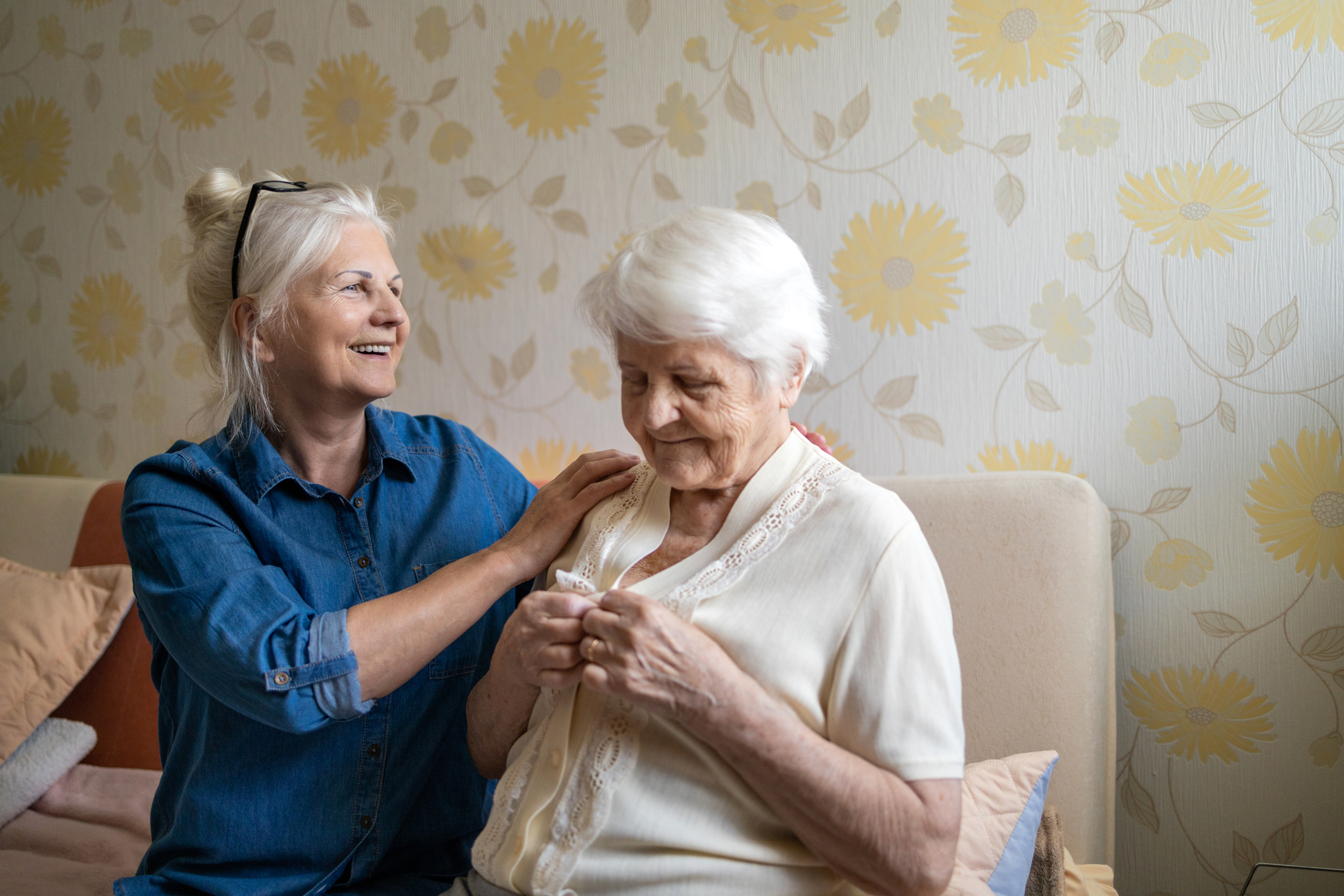
Learn how the middle stages of Alzheimer’s symptoms differ from early stage dementia.
Receiving the news that a senior loved one has been diagnosed with dementia is life-changing. Thinking through the many different facets and factors associated with the disease as well as its effects, both currently and in the future, may be overwhelming.
In this three-part series, we will explore the early, middle and later stages of dementia. Blogs will detail the type of care necessary during each stage, what family caregivers can expect, and how Home With You Senior Care can help.
Middle Stage Dementia: Symptoms
Middle stages of Alzheimer’s symptoms occur slowly, and might be unnoticeable at first. Eventually, a loved one in this stage will start to experience ever-increasing challenges with daily tasks, such as getting dressed. It’s very important for family caregivers to continue to foster a sense of autonomy, allowing the senior loved one to do these tasks at his or her own pace for as long as possible (and as long as it is safe to do so). This involves patience, flexibility, and adaptability.
It will likewise become essential to spend more time to providing care, and to formulate innovative techniques and methods to minimize frustration – for your loved one and for yourself. Self-care becomes vitally important in the middle stage of dementia in order to help caregivers manage stress.
Here’s what you might expect to experience during this stage:
Behavioral Changes
- Anxiety
- Irritability
- Depression
- Repetitive behaviors
- Aggressive outbursts (physical and/or verbal)
Tips on How to Help
Projecting a relaxed demeanor is key. Never disagree or try to reason with an individual in the middle stage of dementia. In a calm and soothing tone, acknowledge the feeling behind the behavior and provide suggestions to help. As an example: “Mom, I can see you’re feeling annoyed about misplacing your favorite shirt. It is probably in the washing machine. This pink one looks pretty on you; would you like to wear it today?”
Understand that the words and actions being conveyed are not a reflection of you personally, but merely part of the normal development of dementia. Many times, there is a fundamental emotion, such as fear, exhaustion, or hunger, driving the behavior. Attempt to pinpoint the main cause and address that.
Communication Changes
- Losing train of thought
- Forgetting a word or phrase
- Repeating questions or statements
- The use of more non-verbal communication
Tips on How to Help
Accept whatever kind of communication works well for the individual, without trying to correct her or him. Adjust your communication technique to make it easier for the person to understand and respond to you. For instance, rather than asking open-ended questions (“What would you like for dinner today?”) offer an option between just two options (“Would you like chicken or tuna casserole for dinner today?”). Speak in a clear, gentle tone, and allow the senior sufficient time to respond without jumping in and providing the answer yourself.
Safety-Related Changes
- Wandering
- Driving concerns
- Sundowning
In this stage of the disease, paying closer attention to safety issues becomes crucial. Driving should stop – something that’s usually challenging for older adults to accept. If at all possible, include the senior loved one in making this decision. If not, a note from the physician prohibiting driving is generally the most effective way to gain his / her consent. In the event the older adult is insistent about continuing to drive, you may have to take away the keys, or exchange his or her set of keys with nonworking ones.
Similarly, sundowning and wandering can become alarming and hard for family caregivers to manage independently. Partnering with a dependable care provider with experience in dementia care, like Home With You Senior Care, is a great solution. Our experts in dementia care in Ellicott City, MD, and the surrounding areas can take the night shift, ensuring seniors are safe and distracted with enjoyable activities when struggling to sleep – allowing family caregivers to get the rest they need.
For more information about our specialized in-home dementia care and to learn how we can help a senior you love with in home care needs, reach out to us at 410-756-0959 to set up a free in-home consultation.
